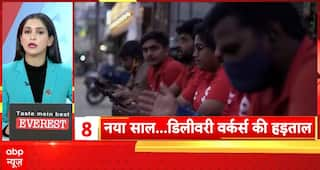Explorer
SC Rules NEET Applies To Minority And Private Institutions, Says Doesn't Violates Rights
The court said the regulatory measures are intended for the proper functioning of institutions and to ensure that the standard of education is maintained.

(File Photo/ Getty)
New Delhi: The Supreme Court on Wednesday ruled that National Eligibility cum Entrance Test (NEET) for admissions in the graduate, postgraduate medical and dental courses would also apply to minority, both aided and unaided and private educational institutions as there are no violations of their rights. The top court said the uniform entrance test, NEET, which qualifies the test of proportionality, is reasonable and the same is intended to check several maladies which crept into medical education, to prevent capitation fee by admitting students who are lower in merit and to prevent exploitation, profiteering, and commercialization of education. It said considering that NEET is the first step "to weed out the evils from the system", it would not be in the national interest to step back considering the overall scenario and "if we revert to the old system, posterity is not going to forgive us". It said the provisions of the Indian Medical Council Act and regulations do not ultra vires or takes away the rights guaranteed to the aided and unaided minority institution under various provisions of the Constitution. A bench of Justices Arun Mishra, Vineet Saran and M R Shah said, "Resultantly, we hold that there is no violation of the rights of the unaided/aided minority to administer institutions under Articles 19(1)(g) and 30 read with Articles 25, 26 and 29(1) of the Constitution of India by prescribing the uniform examination of NEET for admissions in the graduate and postgraduate professional courses of medical as well as dental science". Holding that the regulatory measures by prescribing NEET in no way interfere with the rights to administer the institution by the religious or linguistic minorities, the top court said that it intends to weed out evils from the system and various malpractices which decayed the system. "Regulatory measures cannot be said to be exceeding the concept of limited governance. The regulatory measures in question are for the improvement of the public health and is a step, in furtherance of the directive principles enshrined in Articles 47 and 51(A)(j) and enable the individual by providing full opportunity in pursuance of his objective to excel in his pursuit...," the bench said while disposing of 76 petitions by various minority and private institutions challenging Centre's notification related to NEET. Among the institutions which petitioned included Christian Medical College, Vellore, Manipal University, SRM Medical College Hospital, and Karnataka Private Medical and Dental Colleges Association. The court said the regulatory measures are intended for the proper functioning of institutions and to ensure that the standard of education is maintained and does not fall low under the guise of an exclusive right of management to the extent of maladministration. It said, "The charitable activity of education became a saleable commodity and prerogative of wealthy persons and poor students were forced to get education funded from Banks making it difficult for them to come out of tentacular octave of interest. They are exploited in bud before they bloom into flower. The ill-reputation developed by MCI forced to change its entire structure...The situation is still grim and require to be dealt with firm hand and steely determination". It rejected the submission of some of the minority institutions, that it was open for them to impose higher standards of merit and said that when it comes to national standards and the objects sought to be achieved by NEET, to conduct individual examinations by some institutions cannot be permitted. "The system is not yet out of clutches of unscrupulous devices and dubious means are adopted to defeat merit, the interest of education would further suffer and very purpose of centralised examination would be defeated. It is not possible to prescribe further examination over and above NEET that cannot be said to be workable, no exemption can be granted from NEET, considering the objective with which it has been introduced," the bench said. The top court said that there is no doubt that there are certain colleges which have produced doctors of international fame and they are an asset to not only for India but for the entire humanity. Relying on several apex court judgements including a constitution bench verdict of 2002 in TMA Pai Foundation, the bench said, "Thus, we are of the opinion that rights under Articles 19(1)(g) and 30 read with Articles 25, 26 and 29(1) of the Constitution of India do not come in the way of securing transparency and recognition of merits in the matter of admissions...It is open to imposing reasonable restrictions in the national and public interest". It added "Uniform entrance test qualifies the test of proportionality and is reasonable. The same is intended to check several maladies which crept into medical education, to prevent capitation fee by admitting students which are lower in merit and to prevent exploitation, profiteering, and commercialisation of education". It said minority institutions are equally bound to comply with conditions imposed under the relevant Acts and Regulations to enjoy affiliation and recognition. "To weed out evils from the system, which were eating away fairness in admission process, defeating merit and aspiration of the common incumbent with no means, the State has the right to frame regulatory regime for aided/ unaided minority/private institutions as mandated by Directives Principles, Articles 14 and 21 of the Constitution," it said.
Education Loan Information:
Calculate Education Loan EMI
Related Video
Delhi Election Results 2025: Counting Begins; BJP Poised for Historic Comeback in Delhi, Exit Polls Suggest | ABP News
Follow Education News on ABP Live for more latest stories and trending topics. Watch breaking news and top headlines online on ABP News LIVE TV

Dr Prosenjit NathThe writer is a technocrat, political analyst, and author.
Opinion




































